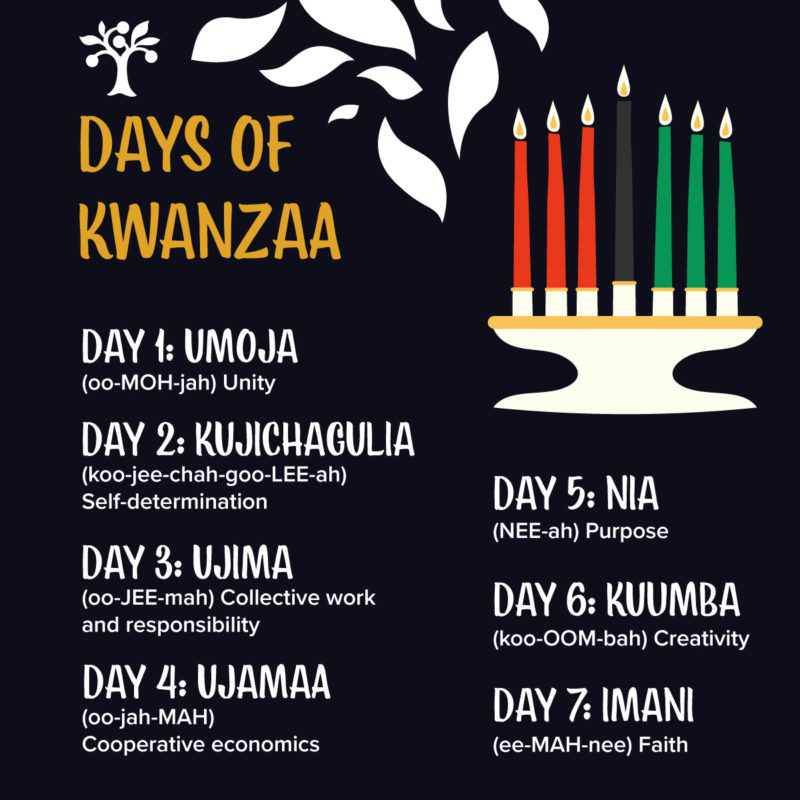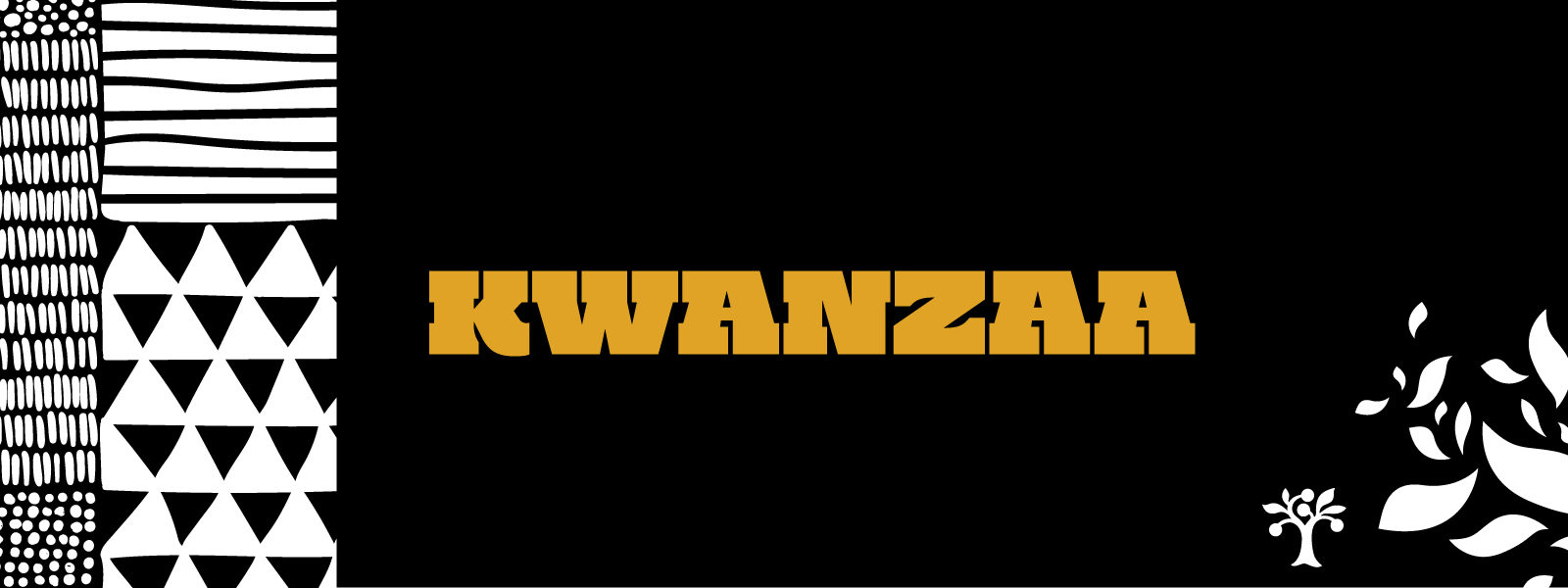 Kwanzaa is an African American and pan-African holiday created in 1966 by Dr. Maulana Karenga. It begins on December 26 and ends on January 1.
Kwanzaa is an African American and pan-African holiday created in 1966 by Dr. Maulana Karenga. It begins on December 26 and ends on January 1.
Different from other holidays throughout the winter season, it is not a religious holiday. It’s a cultural one that allows many from all religious backgrounds to celebrate. The purpose of its creation was to unite and empower the African American community, and it is a ritual used to welcome the first fruits of the harvest into the home. It is rooted in bringing the past into the present, and it is a celebration of connectedness and community.
There are seven principles of Kwanzaa, expressed in Swahili, one of the most commonly spoken languages on the African continent. The principles are Umoja (Unity), Kujichagulia (Self-Determination), Ujima (Collective Work and Responsibility), Ujamaa (Cooperative Economics), Nia (Purpose), Kuumba (Creativity), and Imani (Faith). Many of the principles of Kwanzaa are in alignment with cooperative values that center community, interdependence, and collective and cooperative problem-solving.
Each principle is given a day for reflection during Kwanzaa. A candle is lit on a Kinara, or candle holder, each day of Kwanzaa to honor the day’s principle and offer opportunities for reflection, as well as time to gather with family and friends to be expressive and creative together. It’s also a time to celebrate through food, and many traditional African-American, Caribbean, and South American recipes are featured on the table.
At Seward Co-op, we are always trying to find ways to help foster community year-round. We hope if you’re celebrating Kwanzaa this year, we can be a place for you to gather or stock up on provisions for your Karamu meal. We wish all community members celebrating Kwanzaa and other winter holidays this year safe, happy, and healthy celebrations.
